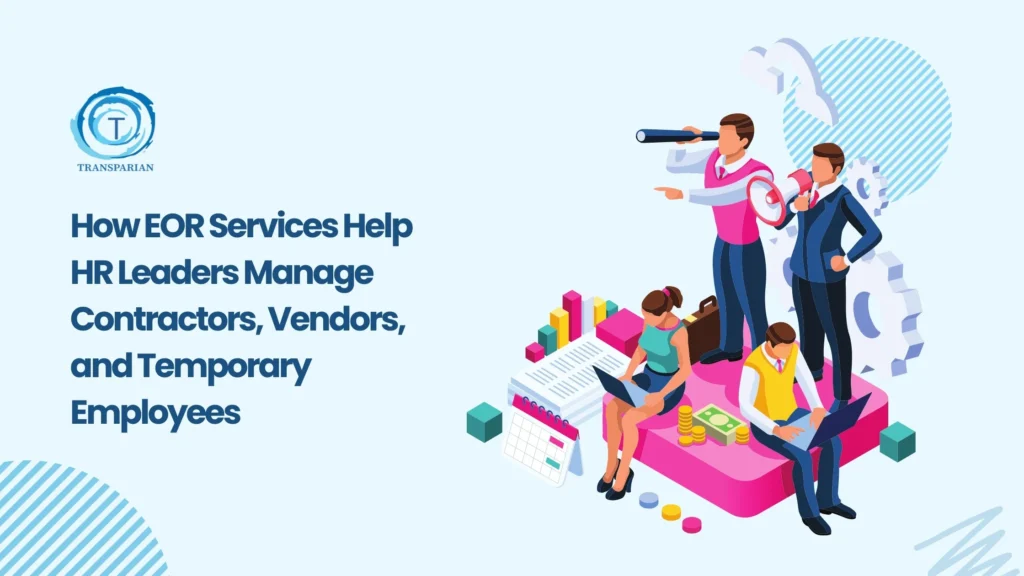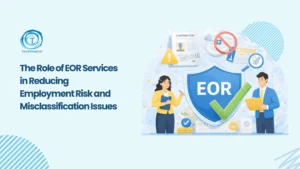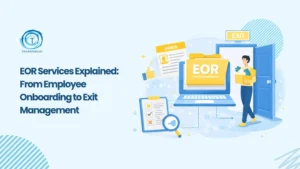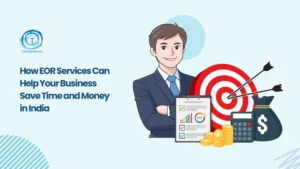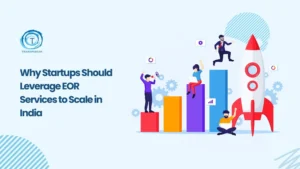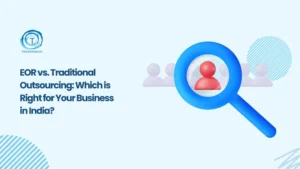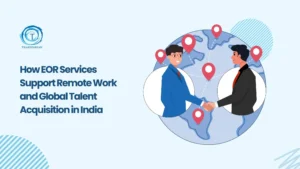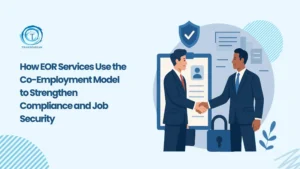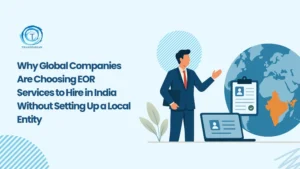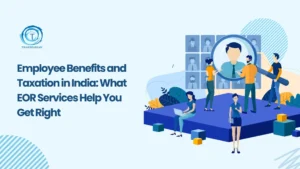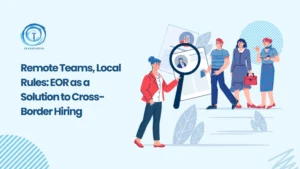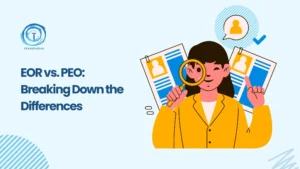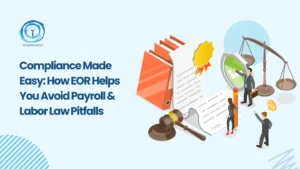In today’s changing workforce, HR leaders manage a mix of full-time employees, contractors, vendors, and temporary staff. These workers often work in different places. Managing this hybrid talent pool requires more than just administrative oversight; it demands strategic agility, legal precision, and operational scalability. This is where employer of record (EOR services) step in as a transformative solution.
Many talks about EOR companies focus on permanent employees and global growth. However, more HR leaders are using global EOR models. They do this to make managing temporary workers easier. Managing payroll internationally and following employment laws has many benefits. This is especially true when working with contractors, vendors, and temporary staff in different countries.
The Expanding Role of EOR in Contingent Workforce Management
Traditionally, employer of record services helped companies hire full-time employees. This was useful in countries where the companies did not have a legal entity. As the gig economy and remote work increased, HR leaders began to wonder. They asked if EORs could help manage contractors and temporary workers. The answer is increasingly yes.
Modern EOR services offer flexible engagement models that support not just full-time hires but also freelancers, consultants, and short-term staff. This is especially valuable for companies scaling quickly or operating in regions with complex labor laws.
Why HR Leaders Need EOR Support for Contractors and Vendors
Managing contractors and vendors across jurisdictions introduces a host of challenges:
- Classification risks: Misclassifying a contractor as an employee (or vice versa) can lead to fines, audits, and reputational damage.
- Tax and benefits compliance: Different countries have different rules around withholding taxes, social contributions, and statutory benefits, even for non-permanent workers.
- Contract enforcement: It is important to make sure that vendor agreements follow local labor laws. This is especially true in areas with strong worker protections.
A remote EOR partner can help HR leaders navigate these complexities by acting as the legal employer where needed, ensuring that contracts, payments, and compliance are handled correctly.
How EORs Simplify Contractor Engagement
Here’s how EOR company solutions streamline contractor and vendor management:
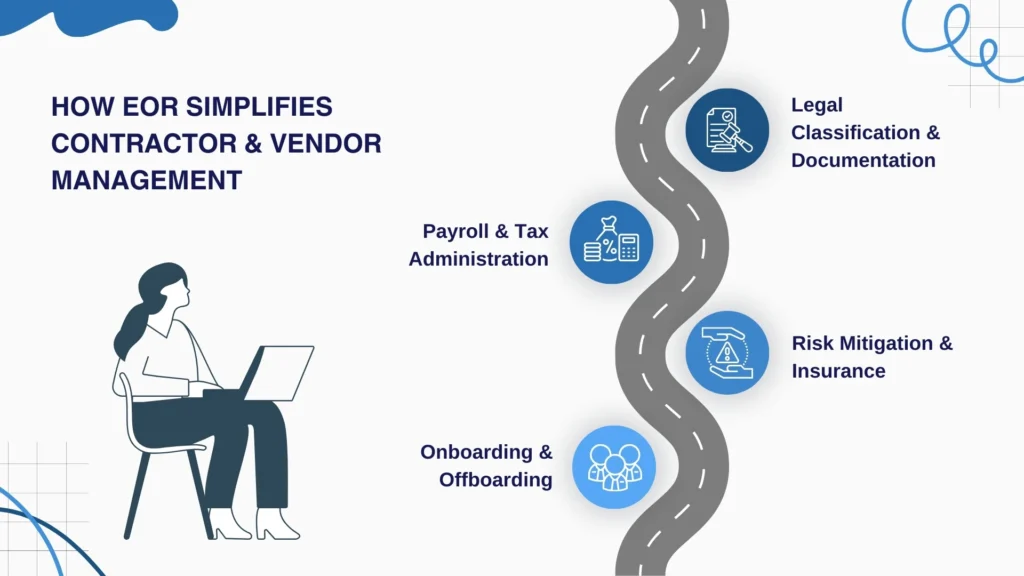
1. Legal Classification and Documentation
EORs help HR teams correctly classify workers based on local definitions of employment. They provide compliant contracts, NDAs, and service agreements tailored to each jurisdiction. This reduces the risk of misclassification and ensures employment law compliance.
2. Payroll and Tax Administration
Even contractors need to be paid on time and in accordance with local tax laws. EORs handle international payroll management, including currency conversion, tax withholding, and statutory filings. This is especially useful for cross-border employment scenarios.
3. Risk Mitigation and Insurance
From indemnity clauses to liability coverage, EORs offer risk management in HR by ensuring that contractors and vendors are covered under appropriate insurance policies. This protects both the worker and the hiring company.
4. Onboarding and Offboarding
Efficient employee onboarding isn’t just for full-time staff. EORs provide structured onboarding for contractors, including access to tools, training, and compliance documentation. They also manage offboarding to ensure clean exits and data protection.
Temporary Employees: A Special Case for EORs
Temporary employees often fall into a gray area, neither full-time nor freelance. They may work for a few weeks or months, sometimes through staffing agencies. HR leaders face challenges in ensuring these workers are:
- Properly documented
- Paid in accordance with local wage laws
- Covered under health and safety regulations
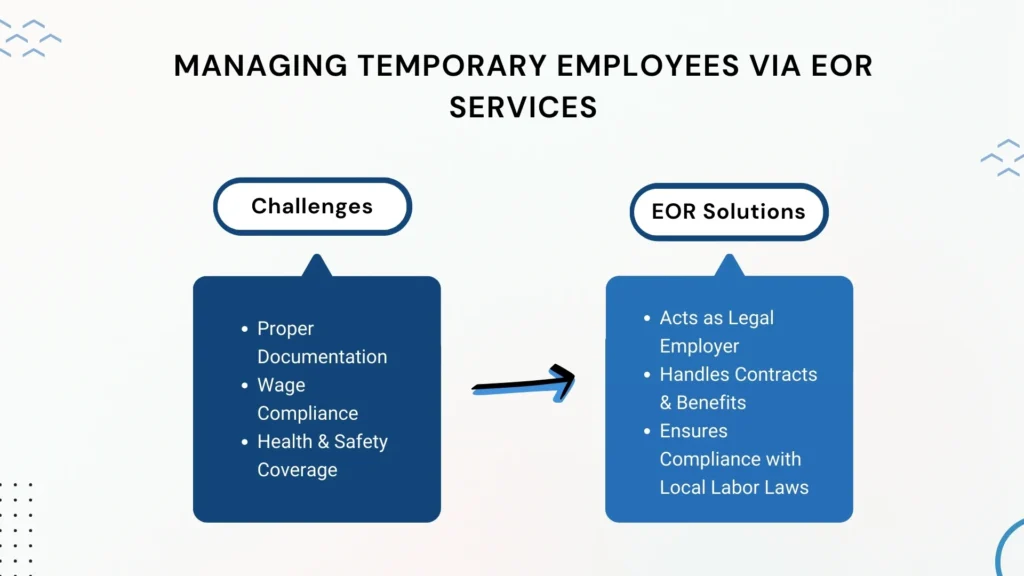
A global EOR can act as the legal employer, handling everything from contracts to benefits. This is especially valuable in countries with strict labor codes, where even short-term workers receive protections.
Vendor Management Through EOR Partnerships
Vendors, especially those providing outsourced services like IT, marketing, or customer support often operate in different countries. HR leaders must ensure that vendor staff working on their projects are:
- Compliant with local labor laws
- Properly trained and onboarded
- Covered under appropriate contracts
HR outsourcing through an EOR allows companies to engage vendors without setting up local entities. The EOR ensures that local regulations legally employ, pay, and manage vendor staff.
Strategic Benefits for HR Leaders
Beyond operational ease, EORs offer strategic advantages:
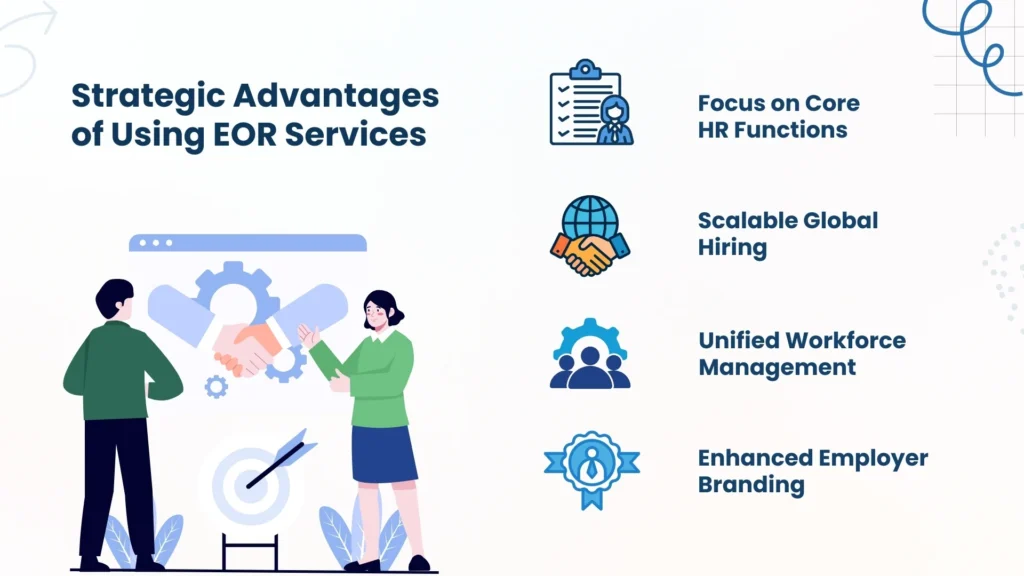
Focus on Core HR Functions
By using an EOR for administrative tasks, HR leaders can concentrate on key areas. These areas include talent development, diversity, equity, and inclusion (DEI), and leadership planning.
Scalable Global Hiring
EORs provide global hiring solutions that allow companies to scale teams across borders without legal bottlenecks.
Unified Workforce Management
EORs help manage full-time employees, contractors, and temp staff. They provide centralized dashboards for remote workforce management. This makes it easier to track performance, compliance, and costs.
Enhanced Employer Branding
Consistent onboarding and compliance across geographies improve the candidate experience even for contractors. This strengthens the company’s reputation as a fair and professional employer.
Use Cases Across Industries
- Tech Startups: Hiring freelance developers in Eastern Europe or Latin America via a remote EOR.
- Consulting Firms: Engaging short-term analysts in APAC without setting up local offices.
- Retail Chains: Managing seasonal workers in new markets through employer of record services.
- Healthcare Providers: Onboarding remote nurses or support staff in compliance with local health regulations.
Technology Integration and Workflow Optimization
Modern EOR services often include advanced platforms that integrate with existing HR software, facilitating remote workforce management, payroll automation, and compliance tracking. For HR leaders, this integration reduces the need for manual intervention and improves accuracy in reporting and analytics.
By leveraging technology, HR departments can maintain real-time visibility into contractor and temporary employee data, monitor performance metrics, and streamline communication across departments. This is particularly valuable for organizations with multiple offices or teams spread across different time zones.
Customizable Solutions for Diverse Workforce Needs
A key feature of top EOR companies is their ability to customize services for each organization’s needs. Employer of record services can handle cross-border employment. They also manage contractors, vendors, and temporary staff. These services can adapt to different workforce models.
HR leaders can customize payroll schedules, benefits administration, onboarding processes, and compliance reporting. This flexibility helps organizations keep a steady HR strategy. It also allows them to meet the needs of different employee groups.
A Future-Ready Workforce with EOR
As rules get stricter and workforces become more international, using EOR services is beneficial. It is also a wise decision. An employer of record offers real benefits for HR. This is true for onboarding contractors in new markets. It also applies to managing vendor compliance. Additionally, it is relevant when sending teams on short-term international projects. The right mix of legal, administrative, and digital skills helps with confident growth. It also reduces risks and makes daily management of the modern workforce easier.
Employer of record services help HR leaders reach global markets and improve operations. They use best practices from top frameworks and address gaps in current market content. These services also ensure compliance is a top priority.
FAQ’s
Yes, a employer of record can help classify and manage contractors in compliance with local laws, reducing misclassification risks and ensuring proper documentation.
EOR services ensure vendor staff are engaged under compliant contracts, paid accurately, and onboarded properly, especially in cross-border employment scenarios.
Absolutely. A remote EOR streamlines employee onboarding for contractors and temp workers, ensuring access to tools, training, and compliance protocols.
EORs provide risk management in HR by handling contracts, taxes, and insurance, ensuring compliance with employment law in each country.
Yes, HR leaders can use global EOR solutions to engage vendor teams for short-term projects without setting up entities or violating labor laws.
They manage international payroll management, including currency conversion, tax filings, and local deductions, ensuring timely and compliant payments.

